Description
ABSTRACT
An Analysis of Casualisation of Labour under Nigerian Law
David Eyongndi*
The use of casual workers in Nigeria by employers is fast gaining popularity as most employers are constrained to adopt this employment practice as a panacea to high cost of running business owing to several unpleasant factors that have bedevilled the economy of Nigeria. This practice has been a source of ongoing conflict between workers, labour unions and employers in most establishments. Labour unions lament that this practice infarcts the workers right to unionise and engage in collective bargaining as workers under this scheme of employment are tactically kept at the whims and caprices of the employer out of the benefits of statutory protection when compared to their contemporaries in “permanent” or “standard” employment. The employer justifies it as being flexible, inexpensive and resource conserving. This article discusses the meaning and rise of casualisation and the legal framework on casualisation of labour in Nigeria. The problems and benefits associated with the practice of casualisation of labour in Nigeria in the light of massive unemployment, underemployment and poverty are also discussed. Some theories of casualisation are analyzed. The article argues that, casualisation as practiced in Nigeria is a dignified form of labour slavery and proposes that the current legal framework on casualisation be reviewed to stem the tides of labour slavery which is currently the practice.
INTRODUCTION
Casualisation of labour has become a practice that is fast gaining significance in several developing economies worldwide, Nigeria inclusive. Under the traditional industrial relations practice, when an employer hires a worker, he does so on a “permanent or full-time basis” and the employment contract is characterised by defined terms and conditions conferring duties and rights on both the employer and the employee who enjoys security of employment under this arrangement. Factors such as globalisation, flexibility of employment, industrial revolution, adverse global economy, the employer’s desire of continuity in business and maximising profit as well as the policy of multinational corporations in production and service companies have created casualisation as a replacement for permanent labour employment. The concept of full-time, standard/permanent employment is increasingly being challenged by the use of Non-Standard Work Arrangement (NSWA) by employers.
It is argued that, the shift from full-time or permanent work to NSWA is as a result of employers using it to avoid the mandates and costs associated with labour laws which are designed to protect permanent/full-time workers in standard employment. Employers have persisted in filling positions in their establishments that are of a permanent nature with casual workers. As the phenomenon of casualisation of employment gains notoriety on an unprecedented scale in Nigeria’s industrial relations practice, its increase and gradual acceptance has become an issue of great concern to labour stakeholders. Casualisation is considered as an affront on the workers right to form and belong to trade union which is anchored on the constitutional guaranteed right of freedom of association.1
* LL.B (Hons) (Unical), BL, LL.M (Ibadan). Lecturer, Department of Private and Commercial Law, Bowen University, Iwo, Osun State
1. Section 40, Constitution of the Federal Republic of Nigeria, 1999, CAP C23, LFN 2004. See also Ibekwe, C.S., ‘Protecting Non-Standard Workers Right to Freedom of Association and Trade Unionism’ accessed 15 February 2016

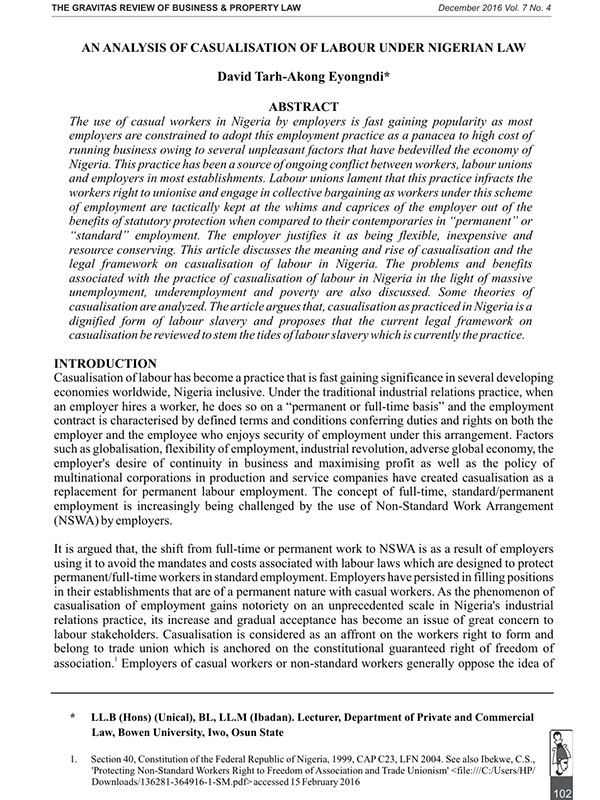
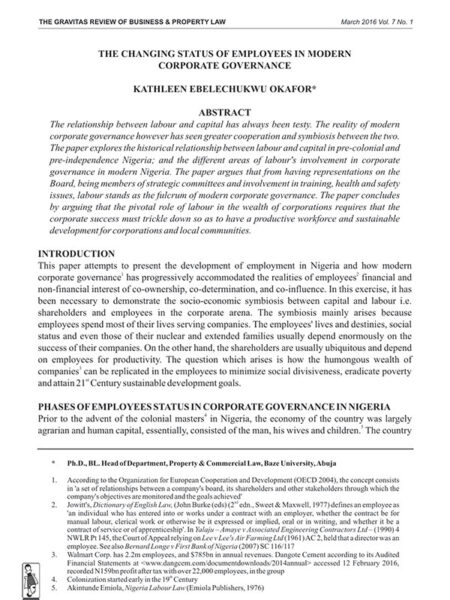
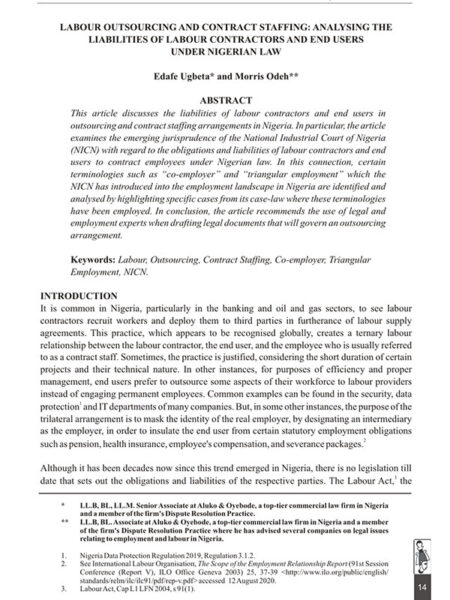
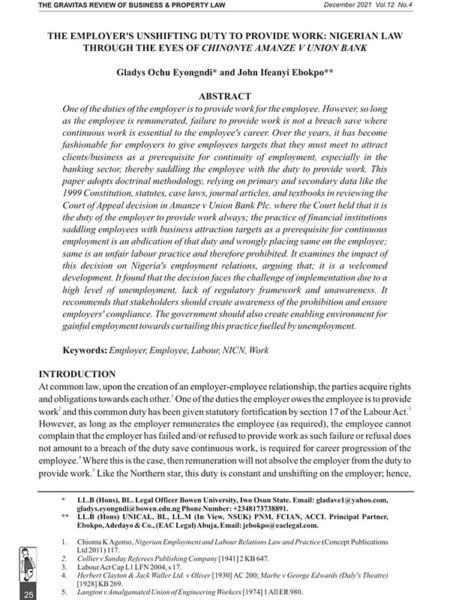
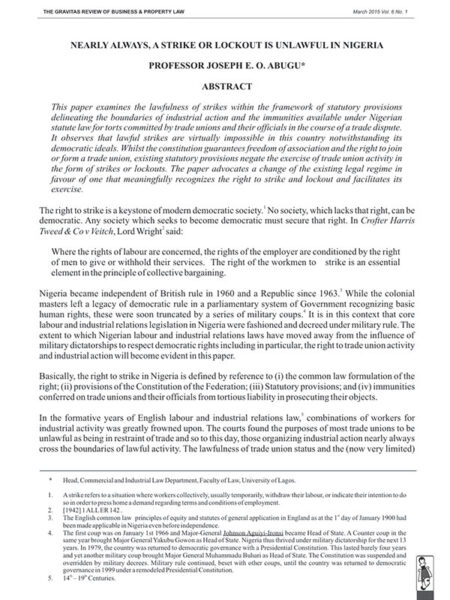


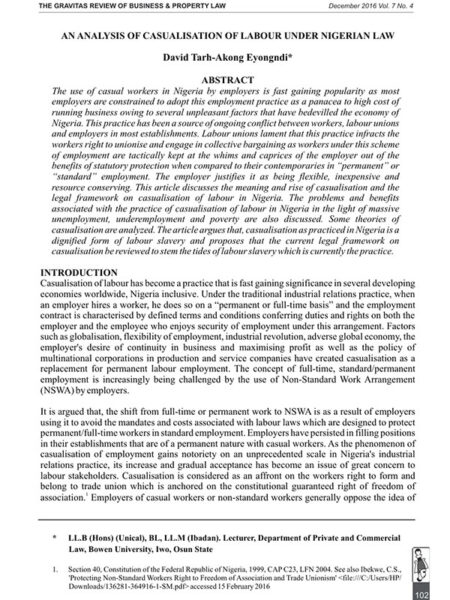
Reviews
There are no reviews yet.